Agile Lean Ireland 2019 Conference - Day 1
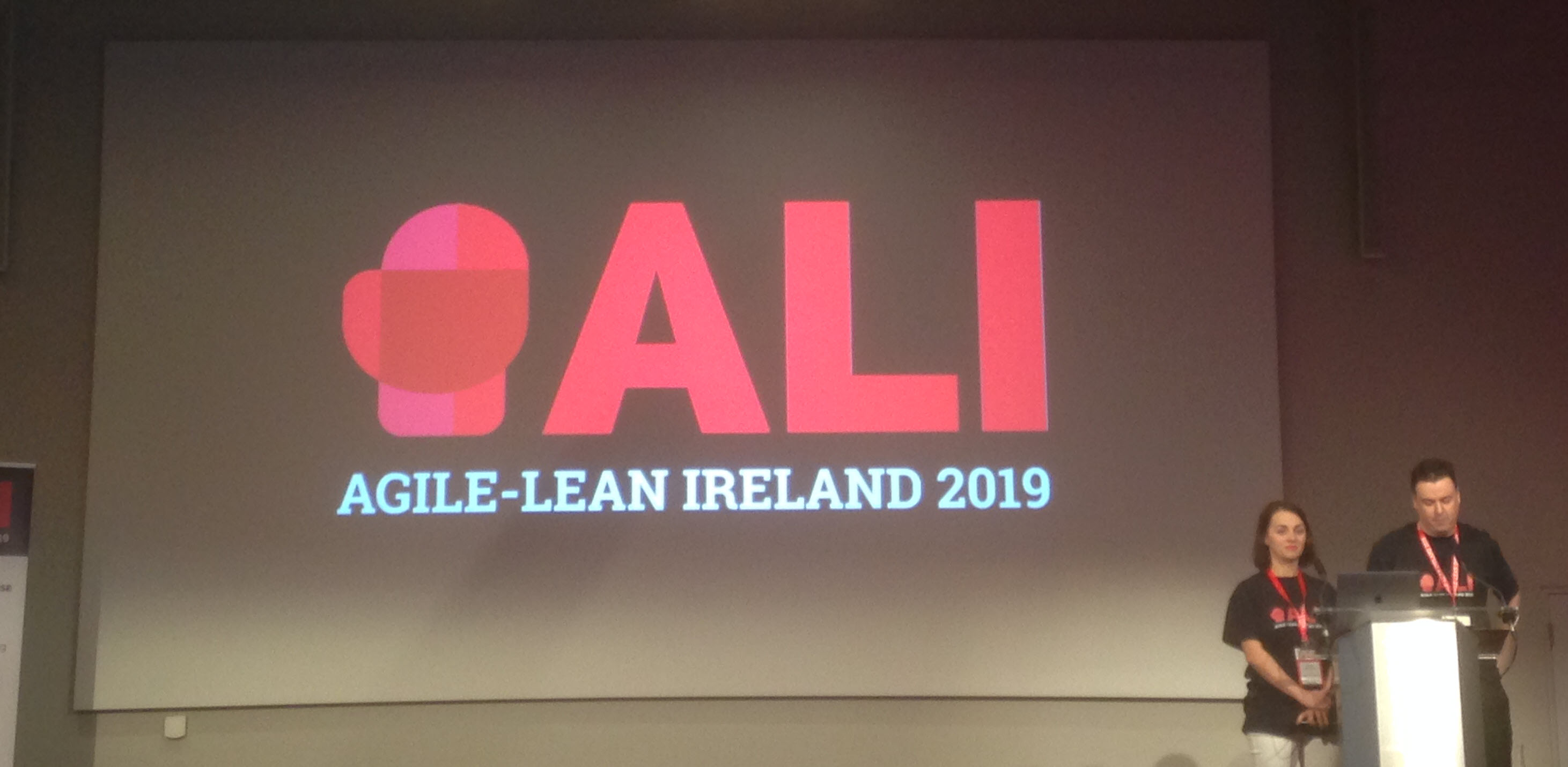
Last week I attended my first Agile conference! It was an amazing couple of days, with some really inspiring speakers, and attended by a sell-out crowd of 750 Agile and Lean enthusiasts from all over Ireland and abroad. The conference was held in Croke Park, Dublin and was very well organized. This was the 3rd year of this particular conference, and it has grown from a small half-day event in 2017 to a full 2 day conference event and another 2 days of optional workshops in 2019, which I think shows that the Agile community is very active and growing here in Ireland. I really learned a lot at this conference, and I return to work feeling inspired, full of ideas, and completely re-energized for the year ahead! I wholeheartedly recommend this conference to anyone, not only those who are working on teams who are following Agile or Lean principles, but also anyone who has an interest in making things better, trying out ideas, improving themselves, improving their team's engagement, or delivering better value to customers.
So, what did I learn? Here's a summary of the talks and workshops I attended out of the wide range of topics that were on offer.
Influencing the bear #
A workshop on how to influence without authority. Key takeaways for me were that to be a better influencer and to truly build engagement, you need to start with yourself by stepping out of your comfort zone and doing things you don't normally do.
So an easy first step for anyone like me is to stop eating lunch in front of your computer and go and engage with your colleagues as it's this engagement that truly makes a difference in successful companies, not how many hours you put in coding, writing, and so on!
Unlearn #
Unlearning - letting go of what worked for you in the past to learn new behaviors and to have the best chance of success in an increasingly complex world. Barry O'Reilly is a very talented speaker and this talk was definitely the most inspiring. He defines unlearning as:
Unlearning is moving away from once-useful mindsets and acquired behaviors
the conscious act of letting go of outdated information and actively engaging in taking in new information to inform effective decision making and action
Barry works with leaders and executive teams from leading companies around the world, and he runs an ExecCamp where he takes leadership teams completely out of their companies for up to 8 weeks to teach them how to unlearn their past behaviors and embrace a culture of experimentation!
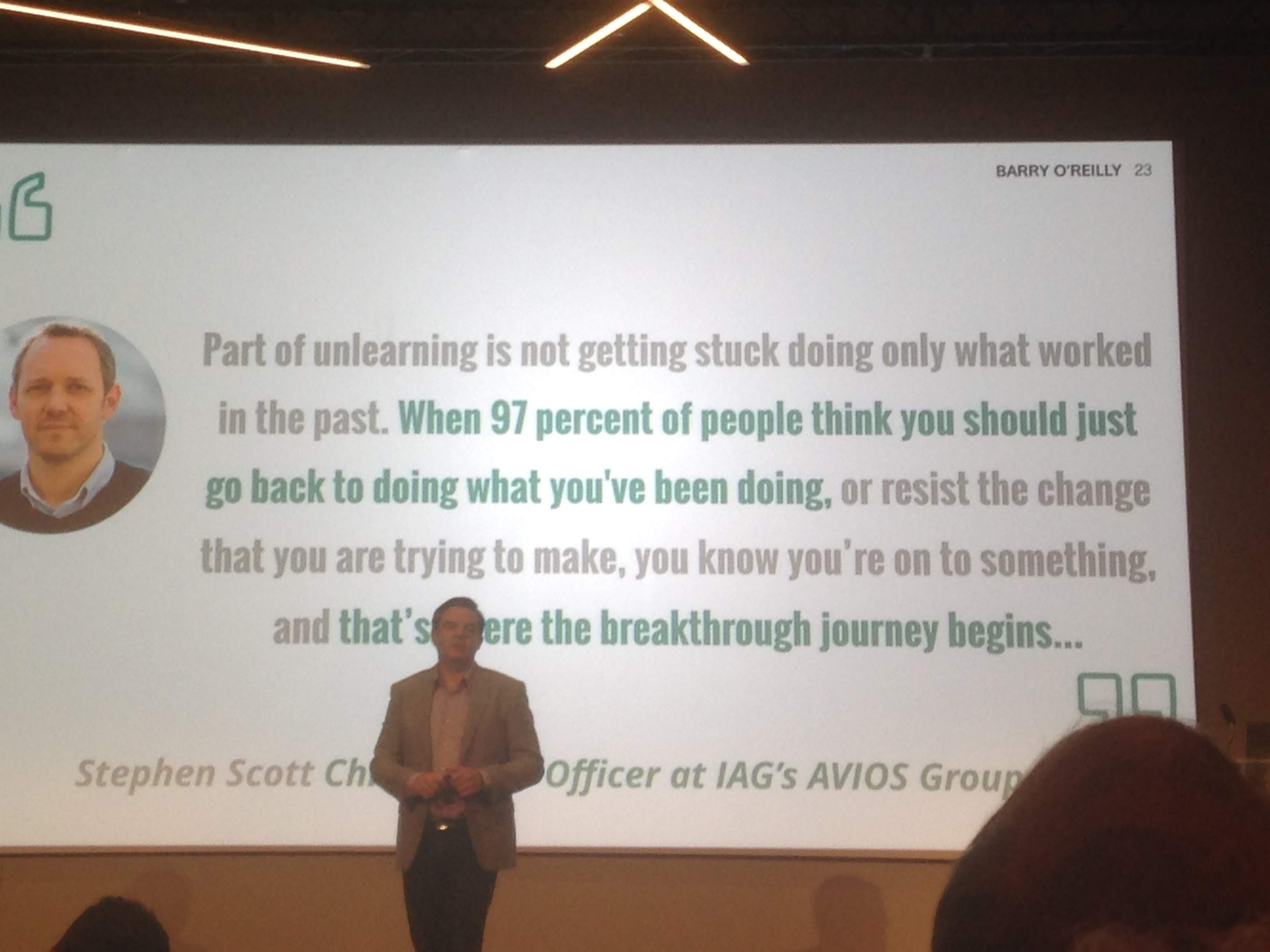
His talk ended with this advice to everyone:
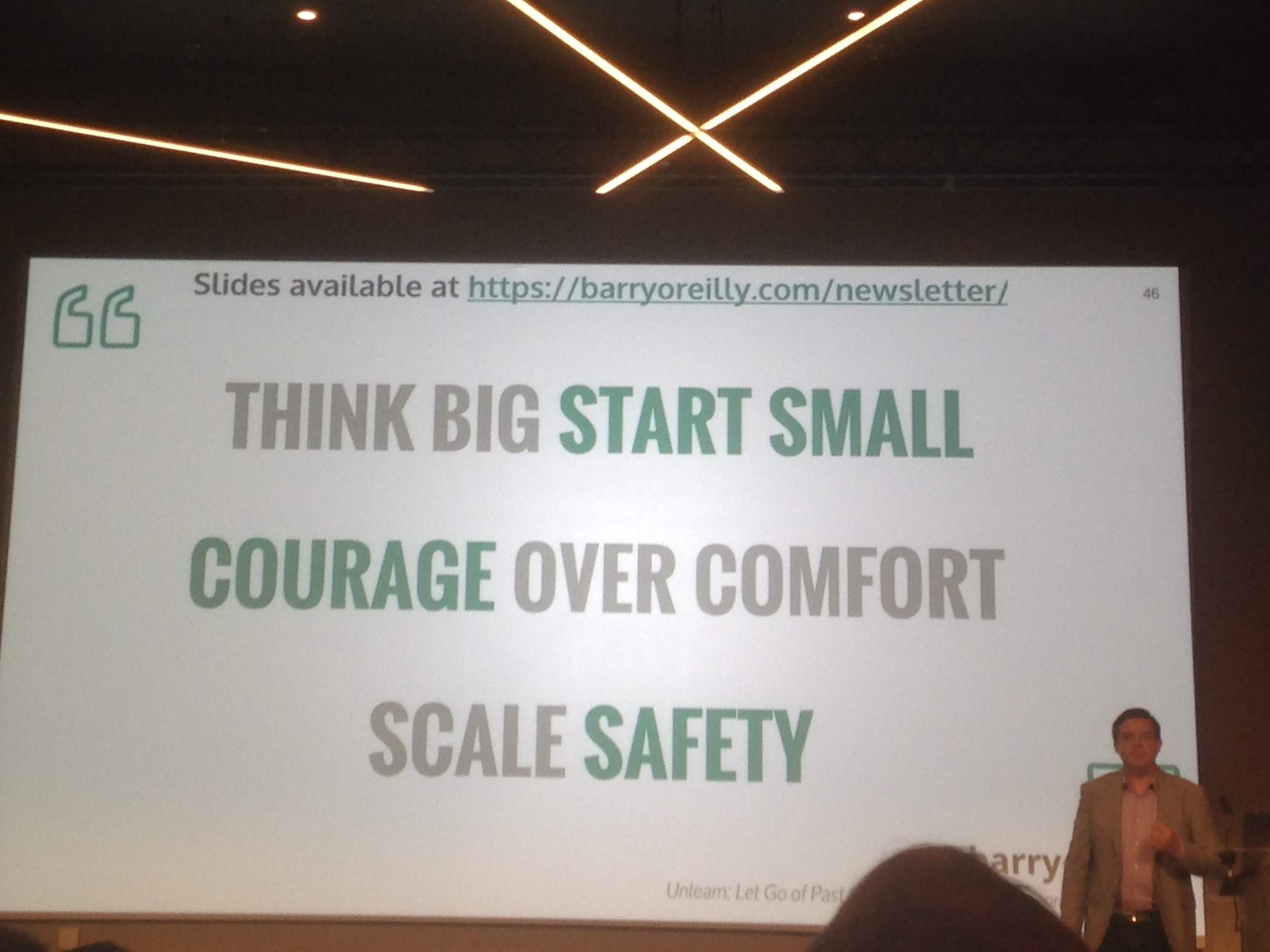
For me this is excellent advice and is key to an Agile way of working:
- Think big, start small, learn fast: Always keep the end goal or value in mind (no matter how unachievable it might seem right now!). Focus on this rather than the immediate obstacles that you think will prevent you getting there. Start with the smallest thing possible, get feedback on that, and then keep iterating on it and learning and improving to get you closer to your end goal.
- Courage over comfort: Have the courage to step out of your comfort zone, stop doing what you've always done, and try something different! Act differently, to think differently! Anything that is cheap and easy to try is worth trying, no matter how crazy it might seem at first. What have you got to lose by trying something, maybe you'll get a completely different result than you expect...
- Scale safety: To encourage your team to try new things and experiment, and to keep experimenting to achieve even greater things, it's essential that we make it safe for them to fail. People don't like failing, especially in front of others, so we need to foster a culture where people feel safe to fail. Praise the initiative, not the result!
All attendees also received a free hard copy of Barry's book "Unlearn", which is also available online at Safari! He's also recently started a podcast, which I'm really enjoying!
From feature factory to value creation network #
This talk by John Cutler (product manager/evangelist) discussed what your team can do to rise up out of, and beyond, the feature factory! It included some great ideas and 6 hacks.
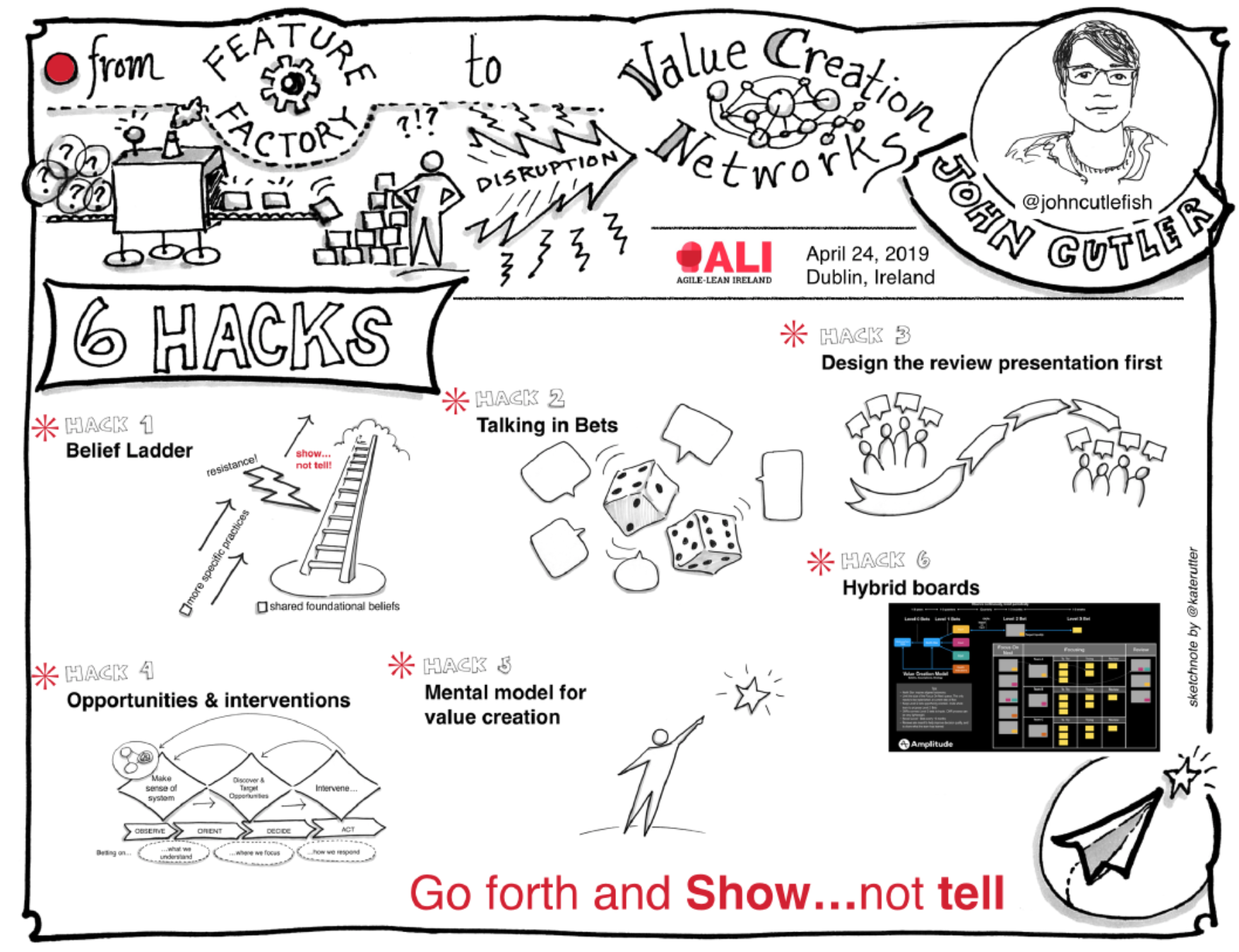
Lightning talks #
Next I attended a full-on series of lightning talks that discussed various aspects of Agile:
- Arkadiusz Felinczak from Verizon spoke about pitfalls to avoid in Kanban. He discussed how important the Kanban board is for transparency, how having WIP limits is key, how decisions must be based on stable metrics, and how success depends on having a continuous release cycle with short feedback loops.
- Leonardo Bittencourt from Ammeon discussed how to improve a teams flow in Kanban. He explained exactly how context switching kills productivity, which leads to a drop in lead time, a longer feedback cycle, and no predictability. He strongly recommended using WIP limits to prevent this, as he believes high WIP limits kill team engagement. He also recommended making all work visible on the board, using metrics, and combating blockers as soon as possible.
- Rob Healy from Unum demonstrated how multi-tasking just does not work and gave some tips he learned on his Agile journey. These included writing up house rules so that your team and other teams are clear on how you work, and also making sure you visualize all work > 1 hour.
Go home to go big: Why distributed teams are the future and how yours can become one too #
This was a very interesting talk from Tim Herbig and was delivered to a packed room of attendees, which I think shows just how important it is for companies to prepare themselves for this to attract the very best talent in the future. It's no longer enough to offer flexibility and remote work options, now it seems like it's almost expected that companies go the extra mile to help remote employees engage with and feel like a real part of their team. I'm not even going to talk about the remote work stereotypes that are still out there, but Tim acknowledged that of course they do still exist in many companies. However, he also predicted that all companies will embrace remote work in some way in the next couple of years, and that prospective employees will choose the companies they want to work for based on their level of "remoturity".
He offered 2 guiding principles to help us include and engage our remote team members:
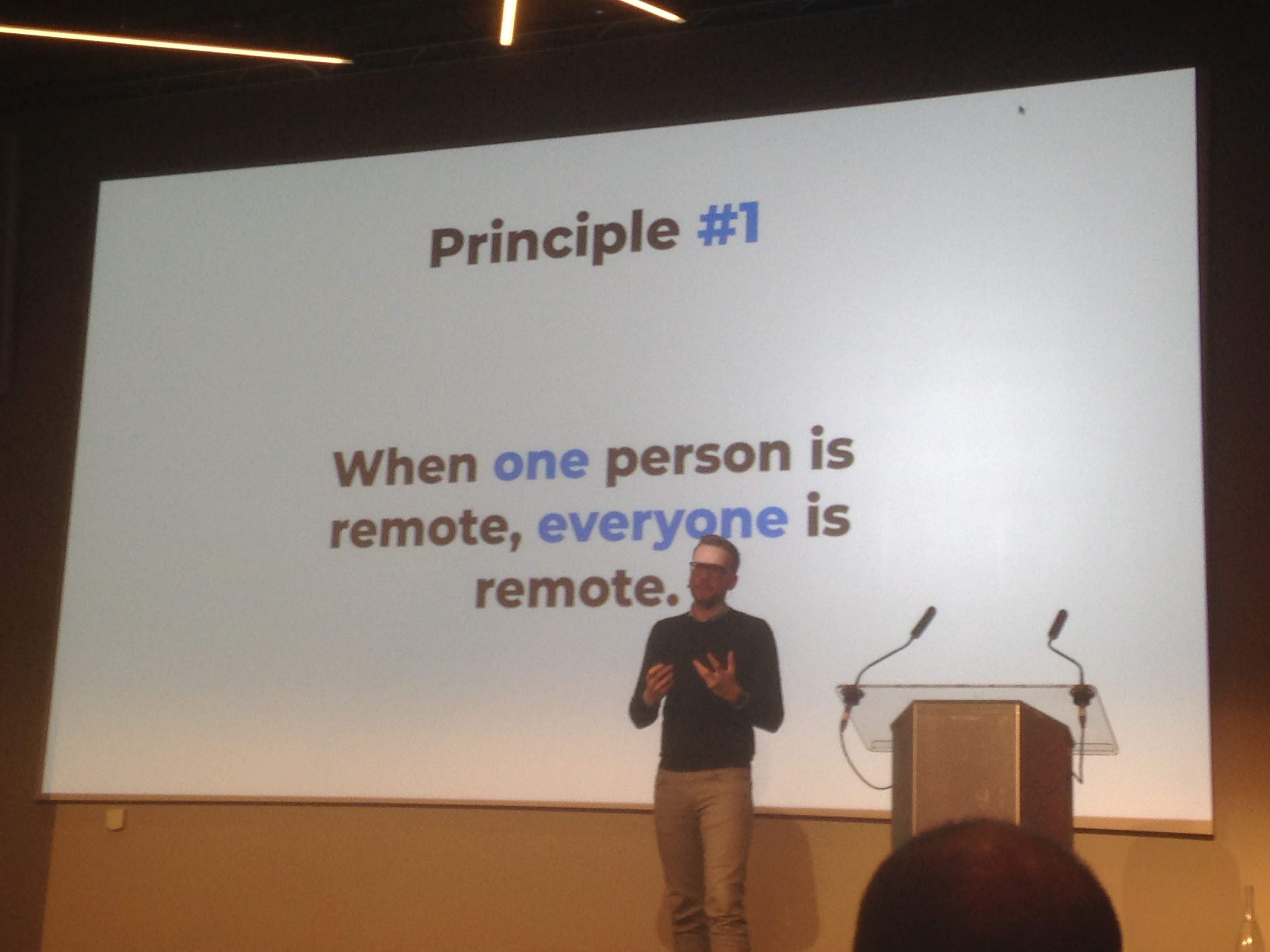
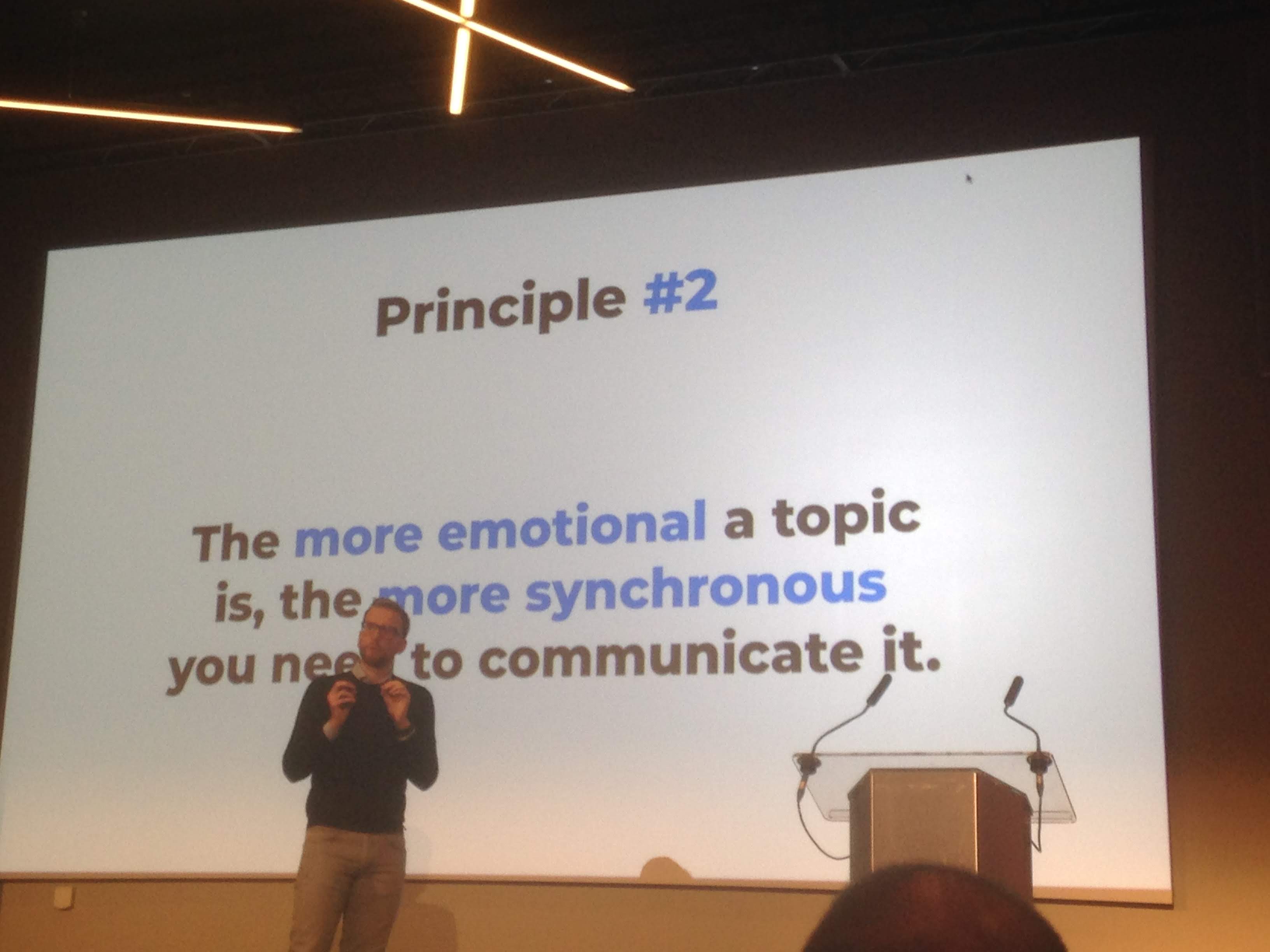
He had some really simple suggestions to help improve engagement with remote team members:
- Stop holding meetings with remote attendees in a meeting room with 1 laptop/phone/camera. Instead, all team members dial in from their desk and use their camera. This puts everyone on an equal footing. The best meetings are the ones where the whole team is focused and engaged at the same level, and nobody is excluded or left at a disadvantage to everyone else.
- Use the right tool for the topic. Of course an emotive topic should be discussed f2f or by video/phone, but everyday check-in type conversations can easily be done asynchronously using IM tools. He described how a team he worked in with remote members in Europe, Asia, and US changed from doing a synchronous daily standup at 4.30AM/9.30AM/4.30PM to doing an asynchronous standup where each member posted an update as a short video recording in their IM tool when they started their day.
- Even workshops are possible remotely! With a combination of video calls, online sticky note/ brainstorming tools, and a camera; alongside an agenda that involves blocks of meeting (converging and diverging) to Understand, Discuss, and Decide.
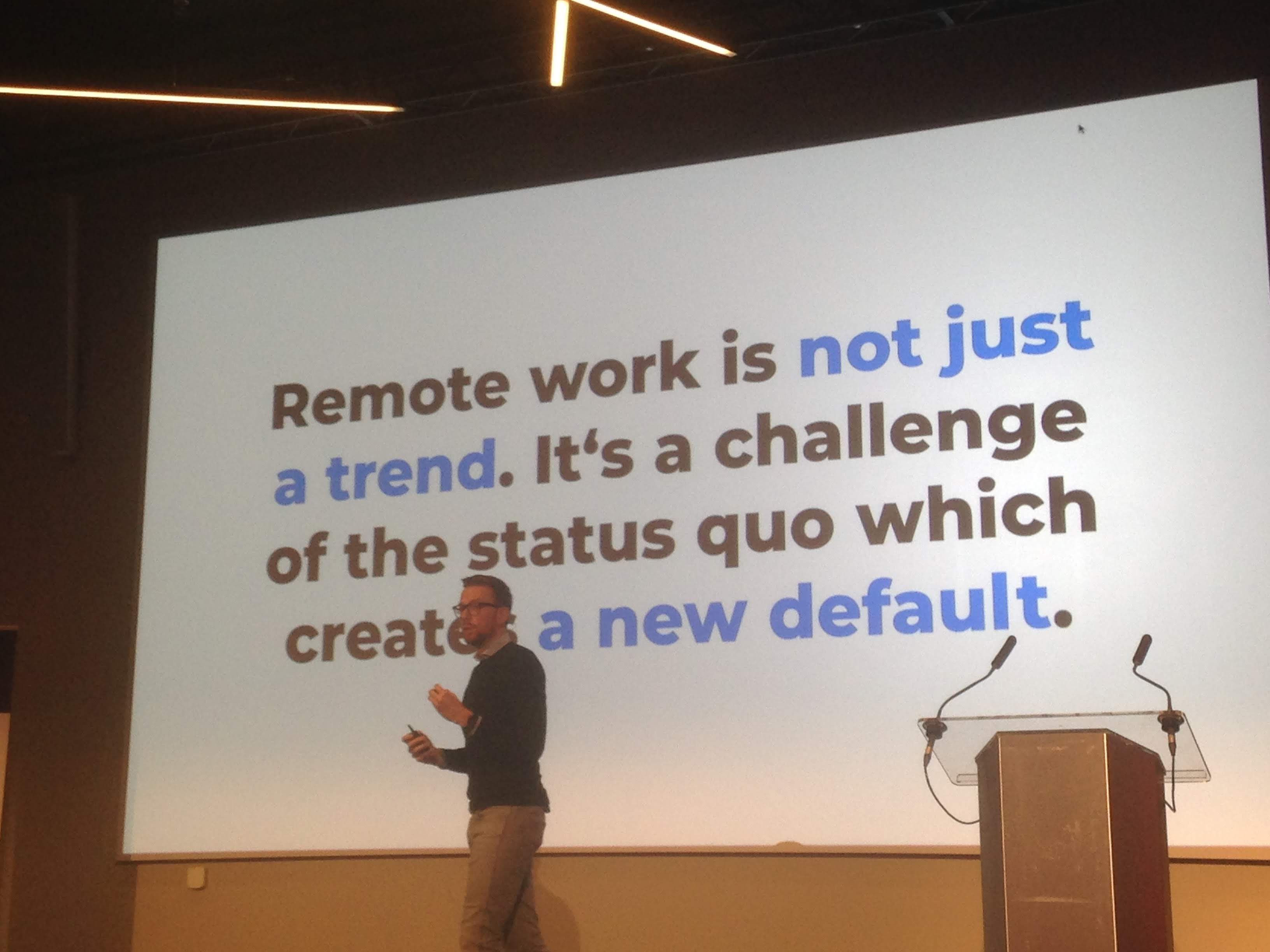
Using value metrics for data-informed decisions #
This was a really interesting talk on metrics and the speakers Magdalena Walczak and Frederico Figueiredo started with asking everybody in the room to stand up and indicate where their company currently is on a scale of 0-5 (1 point for a Yes to each of the following questions):
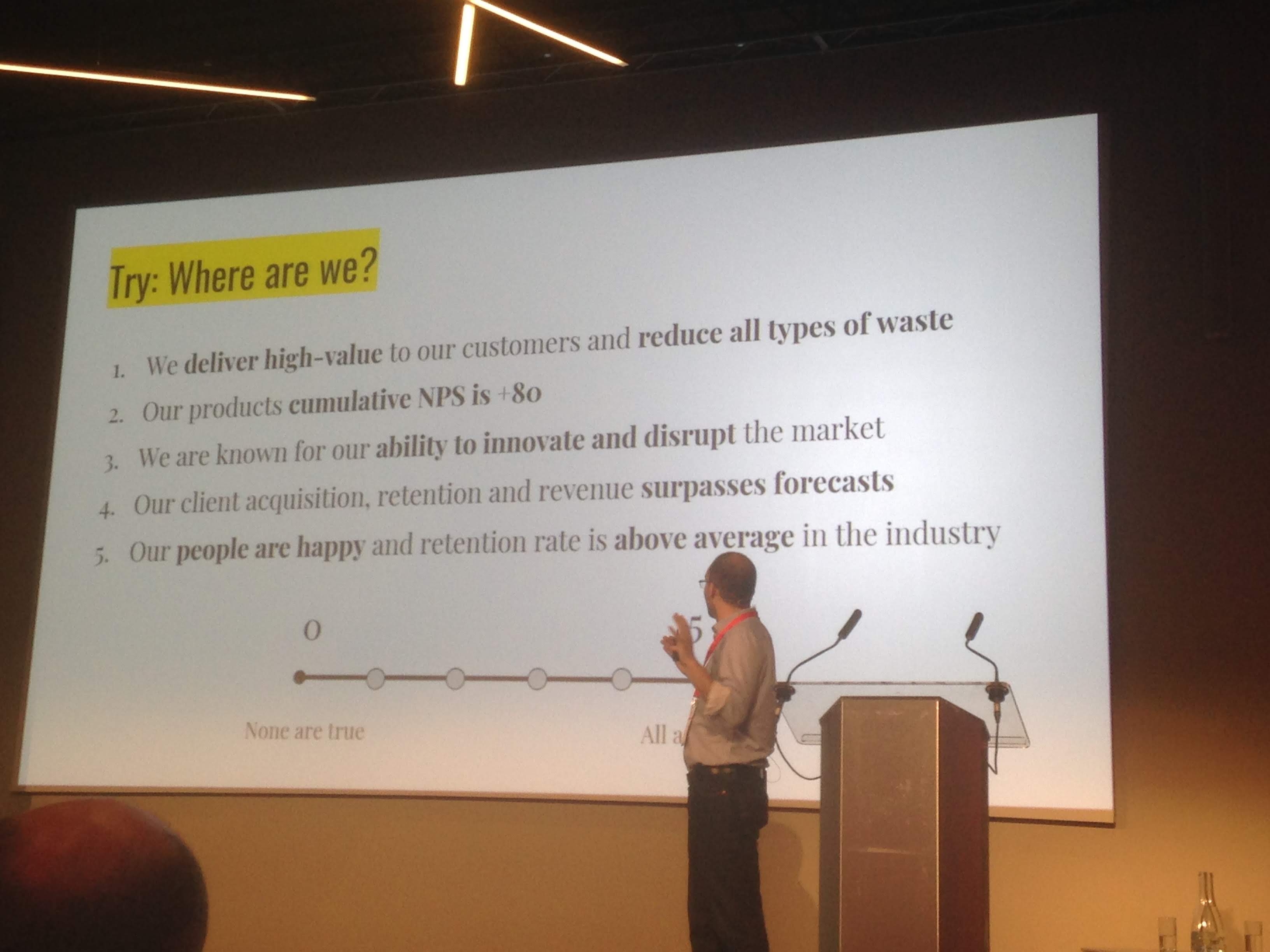
It wasn't surprising to me that the majority of the room stood up for a score of 0-3! They suggested measuring only "value" or "good" metrics:
- More objective than subjective
- Help us understand where we are
- Give us a clear indication of the future state
- Motivate us to improve
- Drive decision making
For example:
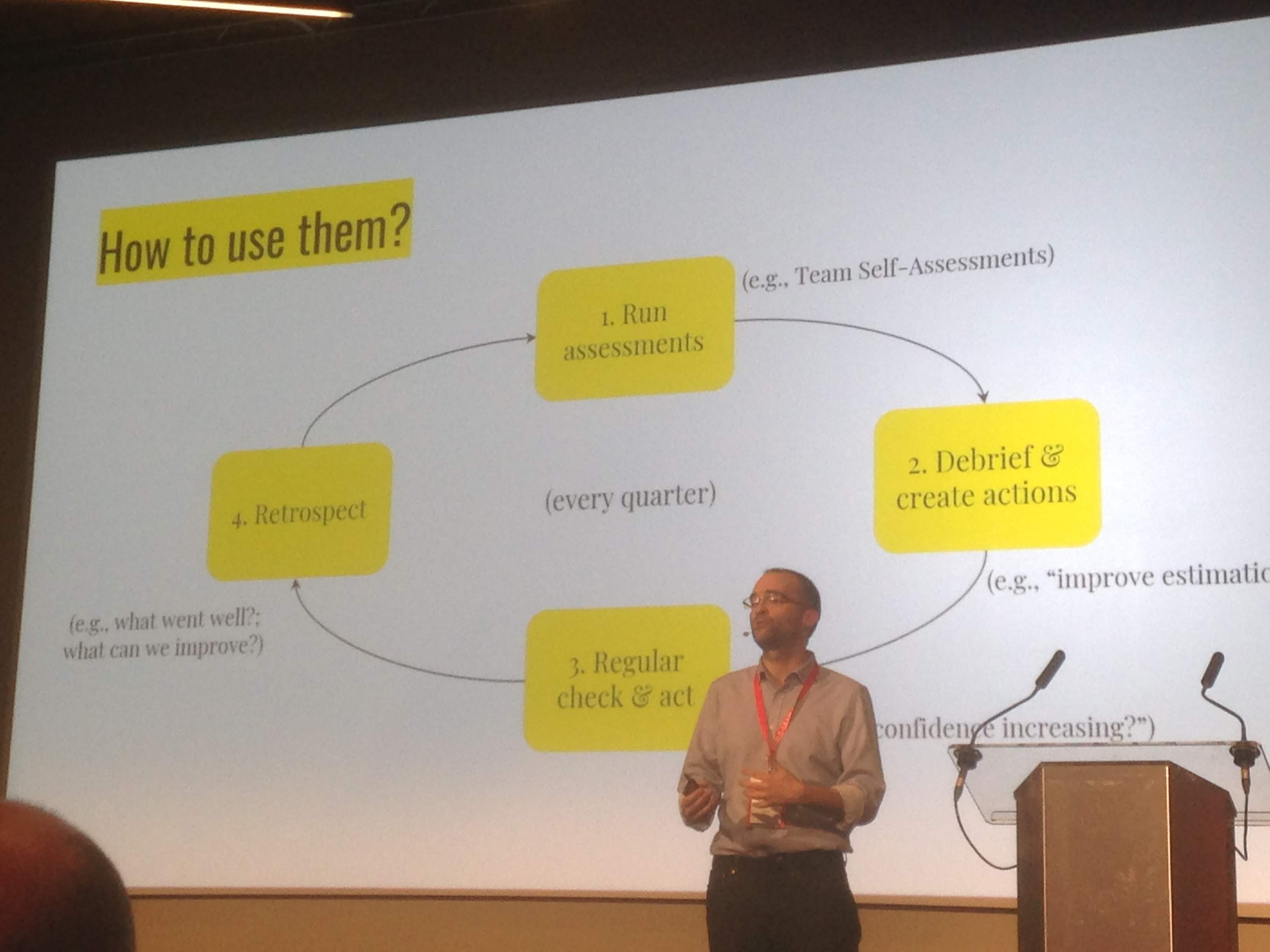
The same approach can be used to continuously evaluate and improve your team, by completing a team "self- assessment" online every quarter, and then creating actions and assessing and reflecting on results:
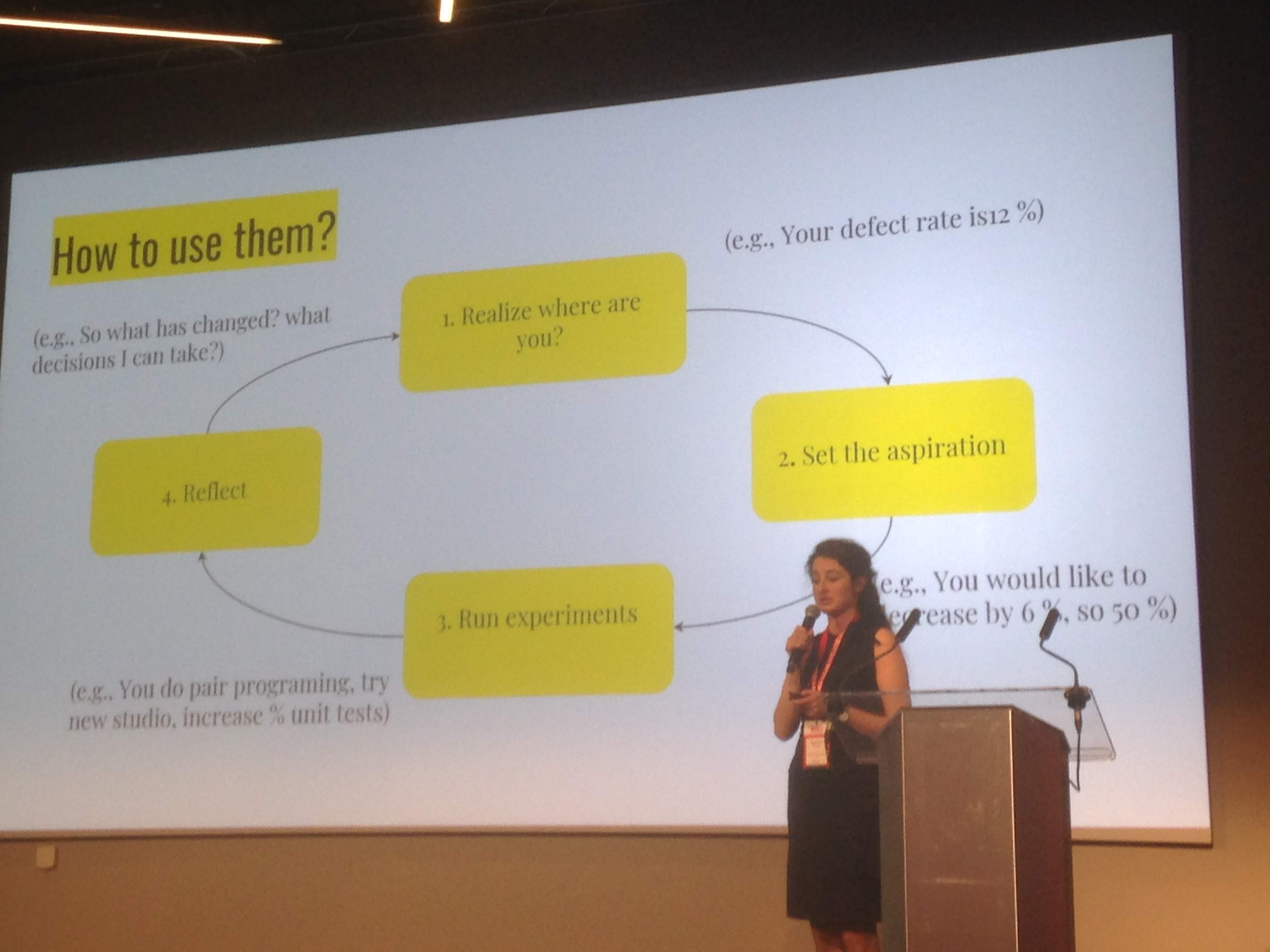
That's it for Day 1...Agile Lean Ireland 2019 Conference - Day 2 coming soon.